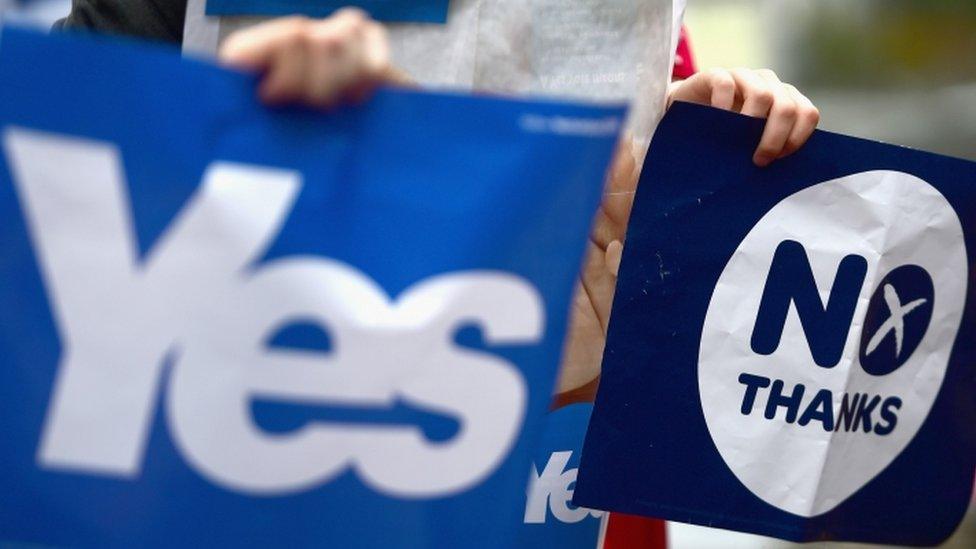Holyrood's lack of indyref2 powers is 'obvious', says UK government
- Published
- comments
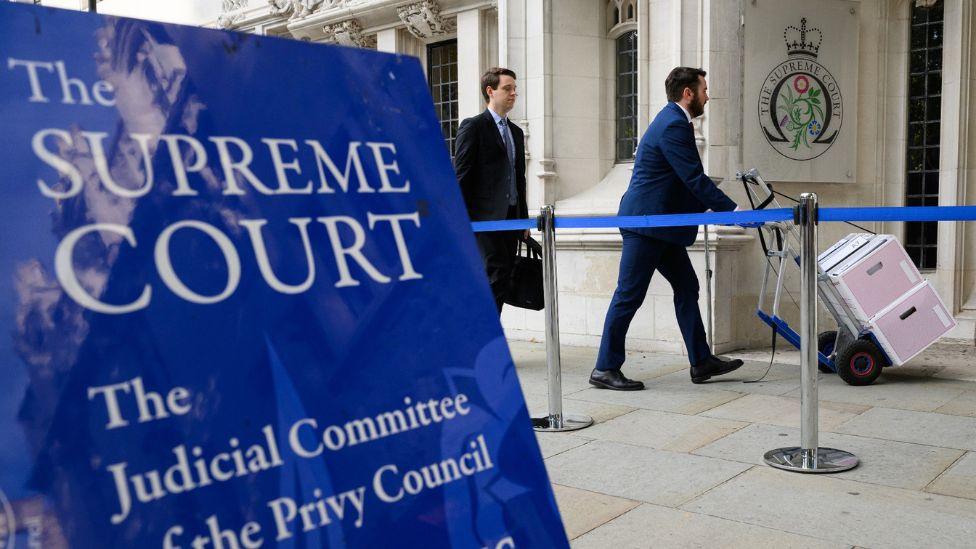
UK government lawyers have told the Supreme Court it is "obvious" that the Scottish Parliament does not have the power to stage an independence vote without Westminster's consent.
Judges are considering whether the Scottish government is able to legislate for a referendum.
Holyrood ministers argue this would fall within devolved powers, but the UK government say it is a reserved matter.
The UK's highest court is hearing the case at a two-day session in London.
A ruling is not expected for some months.
Scotland's lord advocate referred the case to the Supreme Court due to uncertainty over whether Holyrood could legislate for a second independence referendum while this was opposed at Westminster.
Lord Advocate Dorothy Bain KC, the Scottish government's top law officer, argued on Tuesday that a proposed Scottish Independence Referendum Bill would be politically neutral and that the motivations of government ministers should not be considered.
The Scottish government says a referendum would be "advisory" and would have no legal effect on the Union.
But on Wednesday, Sir James Eadie KC, the UK government's independent barrister on legal issues of national importance, said it was "obvious" that the bill relates to reserved matters and the Union.
He said that meant it would fall outside of the competence of the Scottish Parliament.


Call it what you like. Meticulous and rigorous. Complicated and arcane. Whatever the description, there is no doubt the Supreme Court is a serious place for serious issues.
For a second day, the five judges didn't just pick apart the bones of the Scotland Act which established devolution, they squeezed out the marrow and put it under the microscope.
By the end of the hearing it appeared there was little love lost between the Lord Advocate Dorothy Bain KC and her opponent Sir James Eadie KC.
After Sir James had, in essence, accused Ms Bain of making a frivolous reference to the five judges, she concluded with a rather exasperated flourish.
The lord advocate was also keen to remind the court of the weight of the matter at hand — the constitution itself.
The court's president, Lord Reed, has warned that we may have to wait months for a legal outcome but that doesn't mean the political debate will be on hold until then.
Far from it. On Monday the Scottish government intends to publish a long-awaited paper about the economics of independence.
And while the court case is really a matter of process, that document has the potential to reshape the substantive debate about policy, perhaps for years to come.

Sir James said: "The impacts and effects of Scottish independence would be felt throughout the United Kingdom.
"All parts of the United Kingdom have an interest in that issue, not just Scotland.
"It's obvious why it's reserved to the United Kingdom parliament. It's of critical importance to the United Kingdom as a whole."
He also rejected Ms Bain's assertion that the legal effects of the bill would be "relevantly nil".
"The lord advocate's position has to be that legislation which would directly regulate a referendum on the very subject matter that is reserved does not even relate to that subject matter," said Sir James.
"That, we respectfully submit, is untenable as a submission. The Union is the very and the sole object of the referendum that the bill purports to set up."
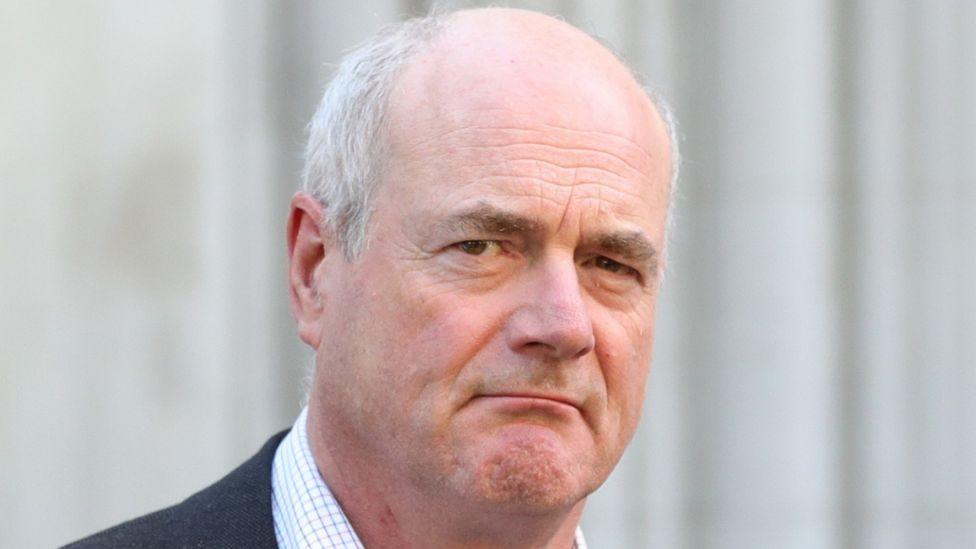
Sir James Eadie KC is presenting the case for the UK government
Sir James went on to say that a written submission from the SNP stressing Scotland's right to self-determination "fails at almost every analytical stage".
On Tuesday, Ms Bain told the panel of five justices that it was "necessary" and "in the public interest" that the question of legislative competence was answered by the court.
Sir James branded the logic of Ms Bain's position "uncontrolled and surprising".
He maintains the court cannot rule on a bill which has not been passed by the parliament.
Sir James also said that the Supreme Court should not rule on the case because the Scotland Act was created in a "binary" way, meaning that the law officer either has confidence in proposed legislation or does not.
He argued that if the law officer does not have confidence, then the bill cannot be introduced.
Sir James said the lord advocate was able to answer the question of whether the proposed legislation falls within the competence of the Scottish Parliament.
"The difficulty is that she can answer it and has done so," he said.
"And the problem for her is that the Scottish government do not like the answer that she has given on competence."
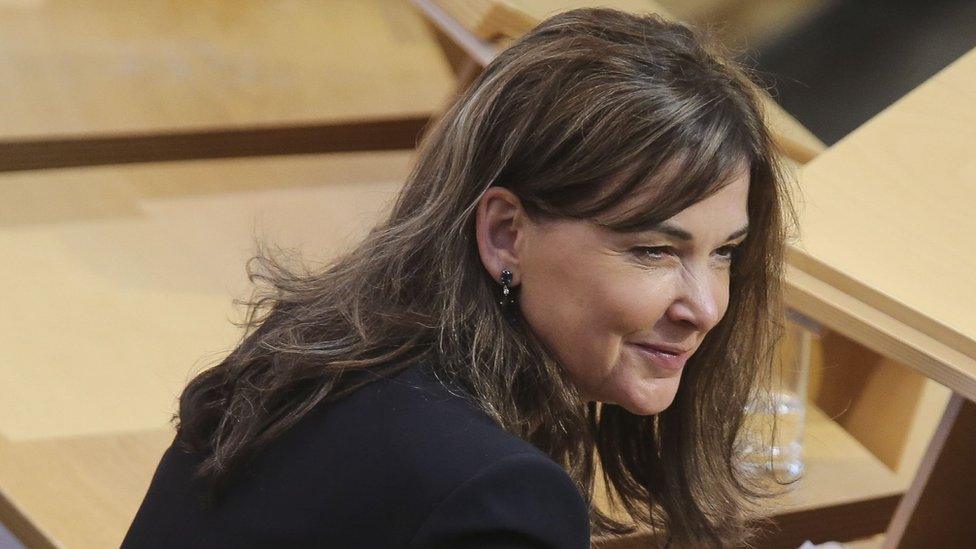
Lord Advocate Dorothy Bain KC is the Scottish government's top law officer
He said Ms Bain "is not able to form a view with a sufficient degree of confidence that the bill that is proposed would be within competence.
"There is not difficulty with answering the question, the difficulty is with the answer."
In her closing remarks, Ms Bain took issue with a coment from Sir James about cases being brought to the Supreme Court "willy-nilly".
She said such comments "belittle" a matter of the "upmost constitutional importance".
The lord advocate continued: "It's just not right that he should say what he said about why we're here.
"It's so unfair and it's reflected in everything we've put forward in our case."
'Tip of the iceberg'
She also dismissed the suggestion this case would open the "floodgates" to submissions to the Supreme Court when law officers were unsure of their parliament's jurisdiction.
Ms Bain pointed out that this was the first such reference in the history of devolution.
The Supreme Court's senior judge, Lord Reed, warned it could be "some months" before a ruling is reached in the case.
He said the two-day hearing was just the "tip of the iceberg", with more than 8,000 pages of written material to consider.
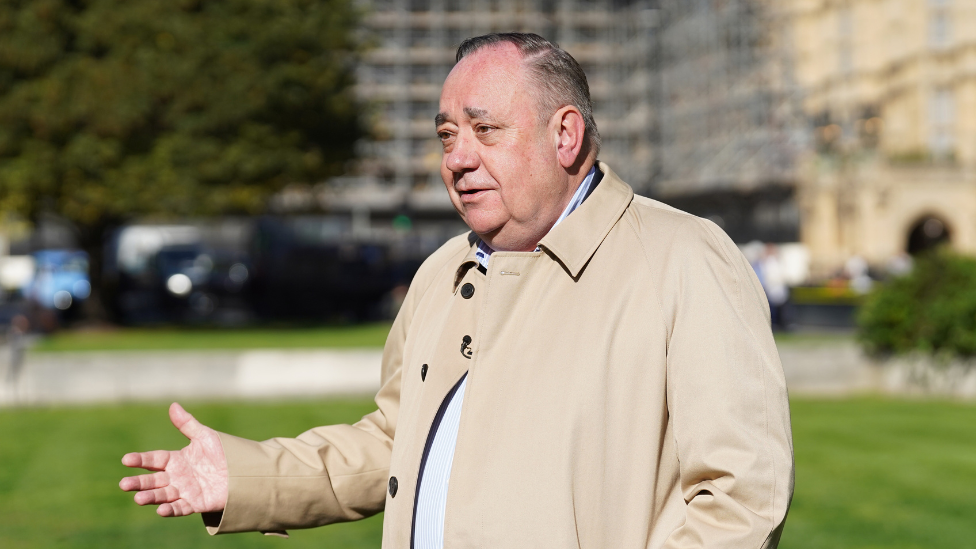
Former first minister Alex Salmond says the Scottish government has made a mistake
First Minister Nicola Sturgeon aims to hold an independence referendum on 19 October 2023.
But if the ruling does not go in her favour, she says the government will consider the next general election a "de facto referendum".
Former first minister Alex Salmond, who is now leader of the Alba Party, said the Scottish government was wrong to take the issue to the Supreme Court – and warned the case could result in a referendum with no legal basis.
He told BBC Scotland: "If the Scottish government were to win this case, then they would win it on the basis that the legislation they passed would have no legal effect because that's the narrow point the lord advocate is arguing."
The former SNP leader insisted it should be the Scottish people who resolve the issue, not the UK court.
"If you're going to take a risk in terms of determining the future of the Scottish nation then you should do it in the best possible circumstance in the best possible place," he said.
He argued that this place was not in the Supreme Court.
- Published11 October 2022
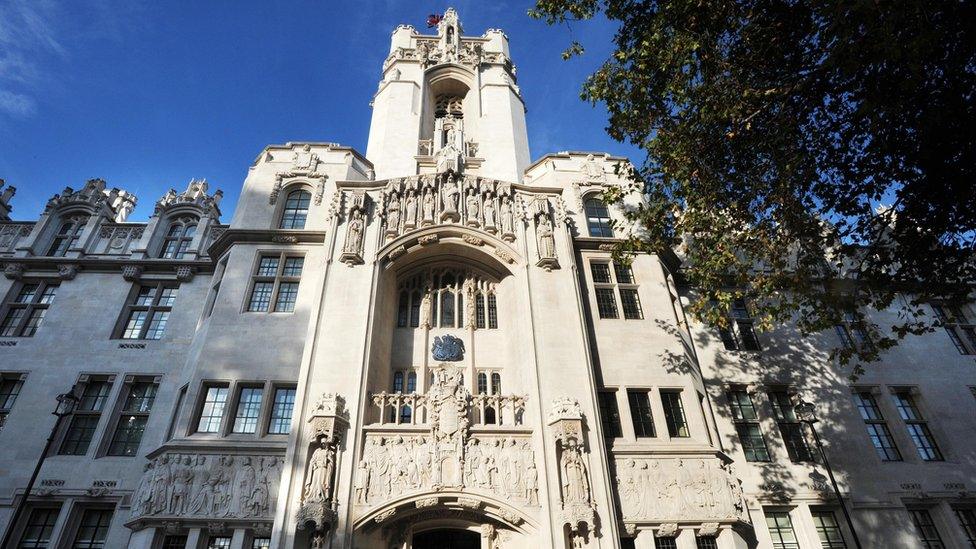
- Published30 June 2022
